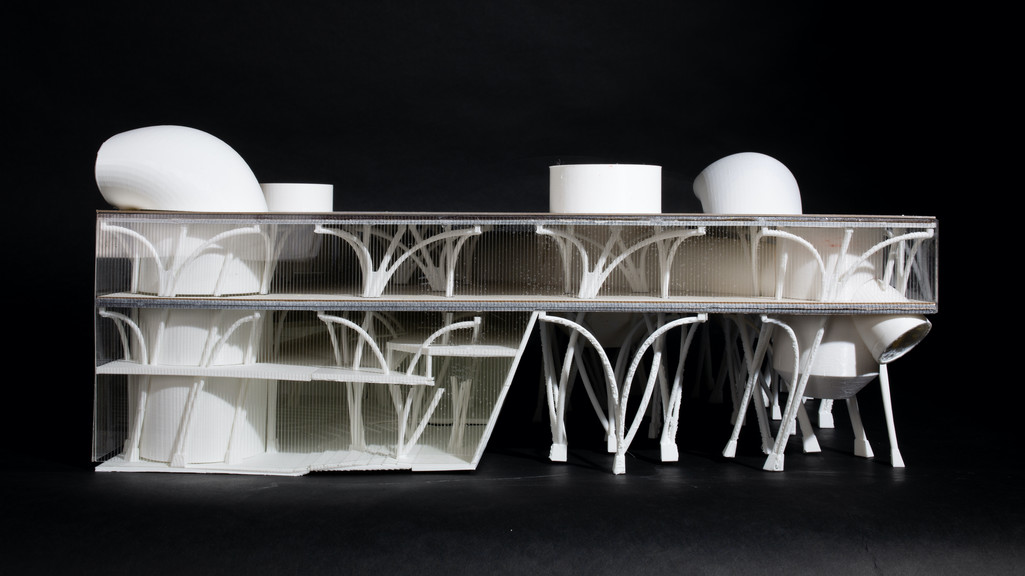
Fungus Among Us
414-415 Comprehensive Design Studio
2023
FUNGUS AMONG US
Work by Yitao Gu and Kinamee Rhodes (both MArch '24) for "NEXT-CYCLE", a two-quarter long Comprehensive Design Studio for second year MArch students, advised by Simon Kim.

Project Statement:
This project is a study on how to levitate a mass through suspended characters. This character, represented as a pig in the diagram, levitates the mass as it morphs its form, penetrating through the mass, wrapping the mass, or even becoming a part of the mass. A silo is a way to levitate a mass, which is an industrial language found at the pre-existing site, a concrete-mixing facility in Santa Monica. A pig is also a way to levitate a mass, a “pork foot” (jokbal) can be a way to levitate a mass, and we call this a column-module, or just jokbal.

This mycelium research center project is a character holding a glass box while it is being held by the boxy mass, with its grotesque limbs spread and extended throughout, becoming both the ceiling/floor structure and the column structure.


One can only glimpse the character’s grotesque limbs as one walks in and looks around. Visible above, the weird pattern of the ceiling structure. And below, the clean surface of the floor finish. Among us, the limbs, the columns, the jokbal, the bodies are rehearsing the play of structure. One cannot view the whole image of the character, but one feels that the character is here, anywhere, everywhere. It is trapped inside the mass; it is performing the mass. A backdrop (a mirror, a billboard) is required to argue that the character exists. One views the shadow cast on the billboard as the character performs on a stage. The body is also a site of graphic expression, with surfaces plastered with supergraphics that signify the building’s character to the public.



This studio challenged the students to develop a position in engaging an existing building/site and to imagine a highly specific and detailed project for its next cycle towards an alternative future. As we contemplate architectural value for spaces that were made for other needs at other times, for materials that might not be directly conducive to present needs and meanings sought; as we decide what to salvage, what to reappropriate, what to reconfigure, what and how to add to; and as we try to make sensible new tectonics for a culture that evolves rapidly, our framing of the problem begins to shift from the territory of responsible environmental ethics towards the territory of potential emergent aesthetics.
Related Faculty |
Georgina Huljich |
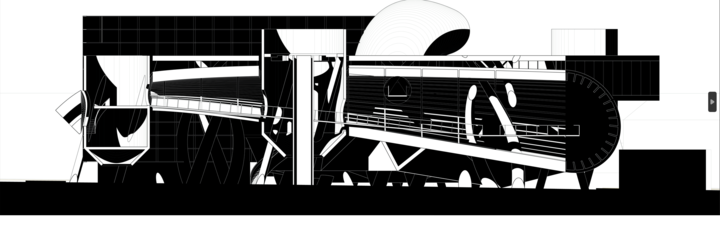

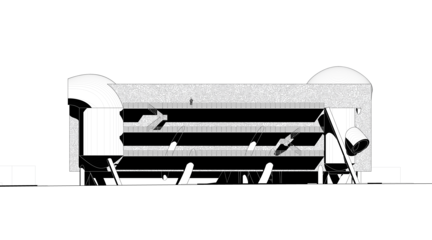
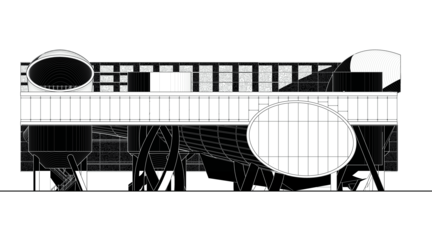
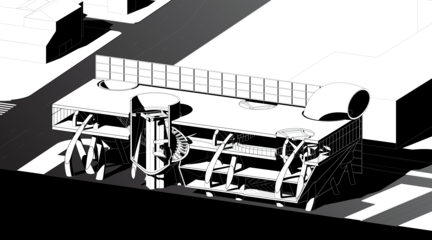
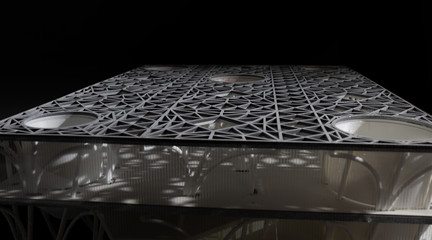
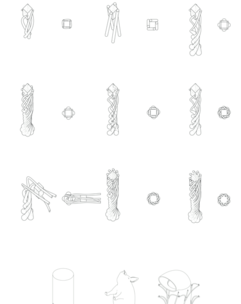
- Section
- Section
- North East Elevation
- South West Elevation
- Section
- Project Image of Roof
- Pig Diagram